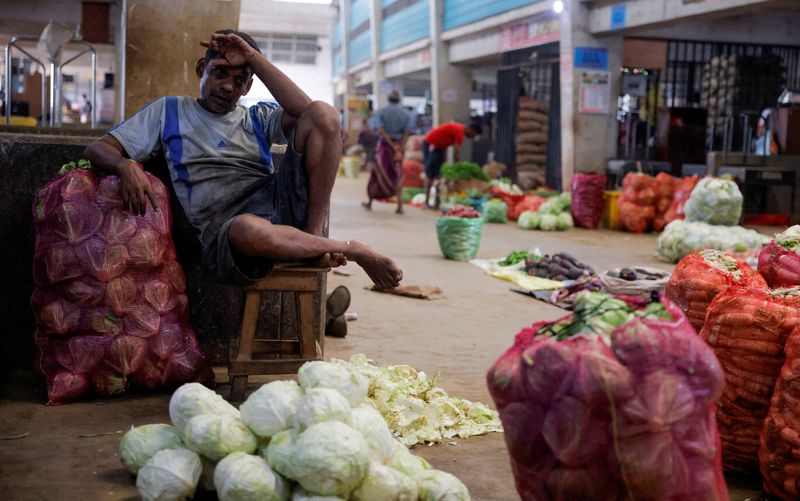By Jorgelina do Rosario and Uditha Jayasinghe
LONDON/COLOMBO (Reuters) -Sri Lanka will kick off a reworking of part of its domestic debt next month and aims to finalise it by May, central bank and treasury officials told creditors during a virtual presentation on Thursday.
The financially strapped South Asian country will also start formal negotiations for the debt it owes to bilateral creditors and overseas bondholders after the domestic debt operation, aiming to complete those parallel debt talks by September.
Central bank and treasury officials said they expected that "exploring options for a domestic debt operation" will help achieve much-needed liquidity relief, including both local currency T-Bills and T-Bonds.
Government officials told investors that only T-Bills held by the central bank would be considered for a debt rework, while a voluntary domestic debt operation was expected for the holders of $24 billion of T-Bonds. Sri Lanka's total local currency debt is equivalent to $36.6 billion, according to the presentation.
The Indian Ocean island nation of 22 million people owes international bondholders over $12 billion, while external debt with bilateral creditors such as the Paris Club, China and India totals $7.1 billion.
"The government will engage with all T-bills and T-bonds holders," Central Bank Governor P. Nandalal Weerasinghe said.
Treasury Secretary Mahinda Siriwardena also participated in the presentation, along with representatives of financial and legal advisers Lazard (NYSE:LAZ) and Clifford Chance.
Sri Lanka is struggling with its worst economic crisis in more than seven decades. It has led to shortages of essentials and the ouster of a president.
EYES ON 'QUALITY' OF SPENDING
The International Monetary Fund's executive approved in March a nearly $3 billion bailout for Sri Lanka that is expected to catalyse additional support from other multilateral lenders.
To that end, Sri Lanka has already frozen public recruitment and has hiked taxes and power tariffs by 66% this year. It will continue to restrict government spending to keep public finances on an even keel and meet primary balance targets outlined by the IMF, Siriwardena told creditors during the online presentation.
Siriwardena added that the country will start looking at ways to improve the quality of its expenditures.
"The most important aspect of this will be tax policy - we see huge potential to increase the tax base and also revenue. On the expenditure side we are also looking to improve the quality of expenditure and extend more to areas like healthcare."

Weerasinghe said the economy could perform better that the 3% GDP contraction the IMF forecasts for 2023, though he provided no other projections for the period.
He added that the tourism sector, a significant source of revenue, is rapidly reviving though "still hasn't reach pre-COVID levels (seen) in 2019. However, we hope for a strong recovery in tourism next year".
